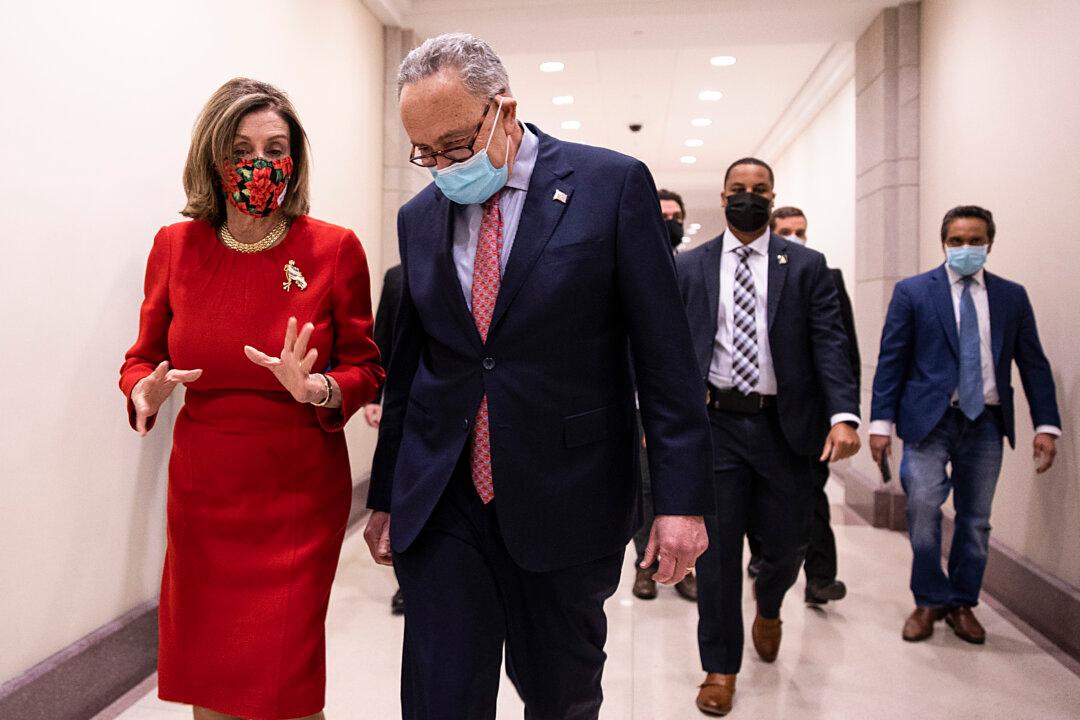WASHINGTON—After more than six months of gridlock, Congress has come to an agreement on a pandemic relief package, delivering long-awaited money to households and businesses. The stimulus package, worth $900 billion, is combined with a $1.4 trillion omnibus spending bill and several other legislative proposals.
The agreement leaves out two main sticking points in the talks—a liability shield for businesses against COVID-19 litigation, and funding for state and local governments.





